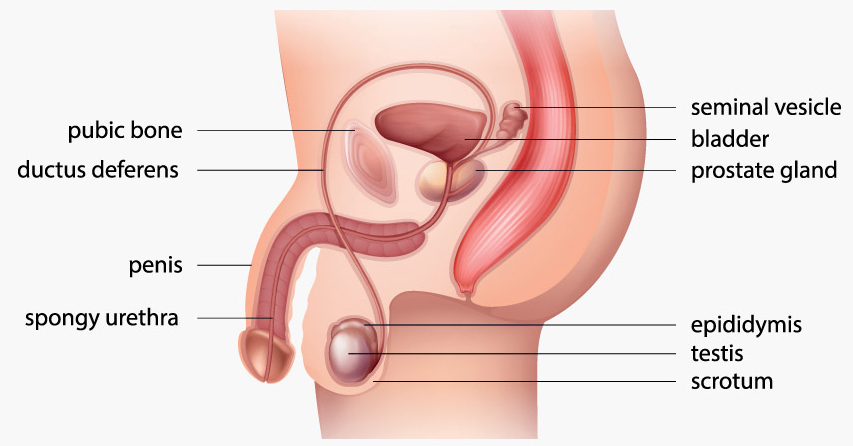FACTS ABOUT PROSTATE CANCER
Knowing more about prostate cancer is the key to defeating it!
What is the prostate gland?
Only men have a prostate gland and only men develop prostate cancer. The prostate is a small gland located at the bottom of a man’s bladder, surrounding the topmost section of the urethra, the tube that drains urine from the bladder. The prostate produces prostatic fluid.
It is connected to the seminal vesicles, which produce fluid that mixes with prostatic fluid to form semen, the substance in which sperm is transported. Tubes from the testicles carry sperm to the prostate, where the sperm are mixed with semen.


How serious is prostate cancer?
Detected in about 288,000 American men in 2023, it is the most common malignancy found in American men. Over 34,000 men die annually from prostate cancer. A diagnosis of prostate cancer, however, does not mean you will die from the disease.
Early detection increases survival and treatment options. The majority of men with low-grade, early prostate cancer (cancer cells which are found only in the prostate gland) live long after their initial diagnosis.
What are my risk factors?
There are 3 factors that greatly increase the risk of developing prostate cancer.
All men over 50, (40 if you are in any of the high risk categories such as African American, family history or age) should discuss prostate cancer screening with their doctor.
What can I do to prevent prostate cancer?
The causes of prostate cancer are not fully understood and there is no one way to prevent prostate cancer. Maintaining a healthy lifestyle is the best way to reduce the risks from all forms of cancer:
If you are in any of the high risk categories, talk to your healthcare provider. Together you can decide how you can improve your health, reduce your risk of disease and live a long, healthy life.
What are the signs and symptoms?
Symptoms are rare in the early stages of prostate cancer. Some of the signs, which may occur, are:
If you experience any of these symptoms, see your healthcare provider. They may or may not indicate prostate cancer.
How is prostate cancer detected?
There are two common screening methods:
Based on results from these screenings, additional tests may be recommended.
How is prostate cancer diagnosed?
A biopsy is the only way to confirm the diagnosis. A urologist, a doctor specializing in diseases of urinary and sex organs, removes tissue samples, usually with a needle. Viewed through a microscope, a pathologist will determine if there are cancerous cells present in the sample.
There are additional tests that your doctor may recommend:
For more information about these and other prostate cancer related tests, visit www.ustoo.org/newlydiagnosed
Are there treatment options available?
Yes, there are many treatment options available. You and your doctor can determine the best treatment plan for you based on the stage or level of prostate cancer detected.
It is recommended that all men diagnosed with prostate cancer seek a second opinion before beginning their treatment. Comfort and confidence are important to the recovery process for any illness or disease.
For more information about available treatments, visit
www.ustoo.org/treatments
What about side effects?
As with all disease, treatment may result in side effects. The intensity of each side effect can only be determined on an individual basis. The two side effects of most concern are impotence, or erectile dysfunction, and incontinence. Learn more about these and other potential side effects at www.cancer.gov/cancertopics/coping.
While side effects may result from the treatment, there are solutions available to improve the effects of treatment. Talk honestly with your healthcare provider to discuss your concerns.